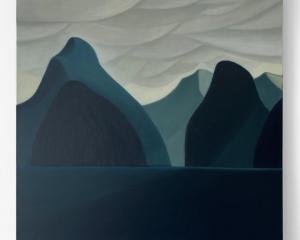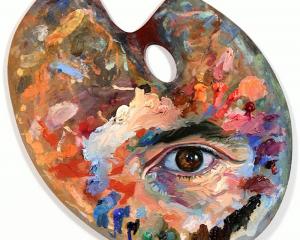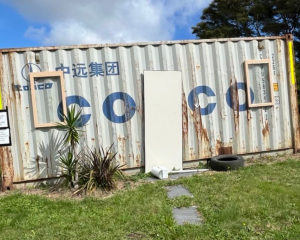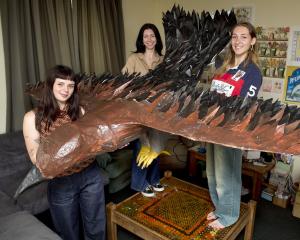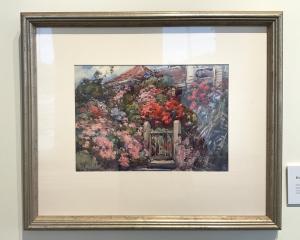He comes from a family of ''lawyers and judges'' but Umberto Clerici did not let that stop him from pursuing a career in music. The Italian cellist about to visit New Zealand for the first time tells Rebecca Fox about his desire to combine solo and orchestral careers.
The idea of playing the same limited repertoire over and over again for the next 30 years inspired Umberto Clerici to look outside the square when it came to playing the cello.
From what he calls a ''non-musical family'' he began playing the cello when he was 5 years old, after choosing it over the violin, because his mother wanted her boys to have a musical education.
''It wasn't my idea. I was a little bit sceptical, I was 5 actually.''
As he grew up, Clerici discovered a real love for the cello and realised he could ''strive'' to be good despite his family ''being lawyers and judges''.
Clerici debuted at the age of 17 playing Haydn's D Major cello concerto in Japan. He went on to study the cello in Germany, gaining a soloist diploma at Augsburg and Nurnberg University.
A milestone for him was when the Italian regional orchestras organised a competition for cellists.
''They decided to give a chance for a young cellist. There was only one prize, to play with all of the orchestras as a soloist. That was 13 orchestras and all of them had two or three concerts.''
As a young musician, performing as a prize was much more important than a piece of paper, he said.
''It was much bigger than any other competition I did. I won that.''
Winning the prize began his solo career. The contacts he made during those performances generated even more work.
''It becomes a chain, direct musical contact.''
From 2002 he began a fully fledged solo career with an array of top orchestras, including St Petersburg Philharmonic, Philharmonia Wien, Brighton Philharmonic, Russian State Orchestra of Moscow, ''I Pomeriggi Musicali'' (Milan), Zagreb Philharmonic and ORT-Orchestra della Toscana (Florence).
Competing on the international competition circuit, he won many titles and became only the second Italian cellist to win a prize at the renowned Tchaikovsky Competition, in Moscow in 2011.
However, he had begun to question his career choice and took some time out to assimilate the experiences he had to create his own voice.
He realised as a solo performer he would spend his career playing mostly five pieces of music, as the cello repertoire was limited and there were restrictions on time and rehearsals, meaning orchestras struggled to stretch to more taxing pieces of music.
''If in five or six years I had played the concerto 100 times, what was coming next?'' he said.
The classical music market was very crowded and busy but at the same time the number of orchestras and concerts was reducing, he said.
So he asked himself if he really wanted to risk everything on a solo career and decided to look for other opportunities.
He sought out positions in orchestras so he could combine a solo and orchestral career.
''I never understood why it could not be possible to play in the orchestra and then the next day play the sonata with the piano.''
In 2014, Clerici was appointed principal cello of the Sydney Symphony Orchestra and for four years he was principal cello at the Teatro Regio in Turin.
He is a cello lecturer at the Sydney Conservatorium and in the summer at the Salzburg Mozarteum University.
''At the moment my life is balanced in three different ways: one is solo concerts three or five months a year, then the orchestra and I teach at the conservatorium.
''It's very busy. For me it is very interesting to combine the different aspects of the same coin.''
He chose to move to Sydney because there was not the ''great historical perspective'' his home country had when it came to music.
''At the same time tradition can be an enormous weight. Italy doesn't have a very good relationship with modernity.
''The people and orchestra know all the words and moments. There is the tendency to only do the classical works that people know.
''It is same in Russia, for example, in Germany too. They don't change. They need to keep what's worked for the past 500 years.''
He found dancers in some of the Russian ballet companies he toured with had similar issues; a dancer could be 35 years old and have danced Swan Lake or The Nutcracker 400 times.
''They repeat it their whole life. What they like here [is] a huge programme, a lot of concerts, but the variety is enormous.
''It's so wide, you play a lot of English music which in Italy or Germany doesn't exist.''
''What I like here is the freedom to refine the culture, mixing different elements.''
His choice means he does a lot of travelling, spending four or five months a year overseas.
He plays a cello made in Milan in 1758 by Carlo Antonio Testore and said one of the downsides of playing the instrument was needing to buy a second ticket for it to travel in the seat beside him. The instrument was too important historically to risk in the luggage compartment, he said.
''It is becoming more and more difficult, regulations are more and more difficult, not only the cello, instruments in general. There is no solution.''





